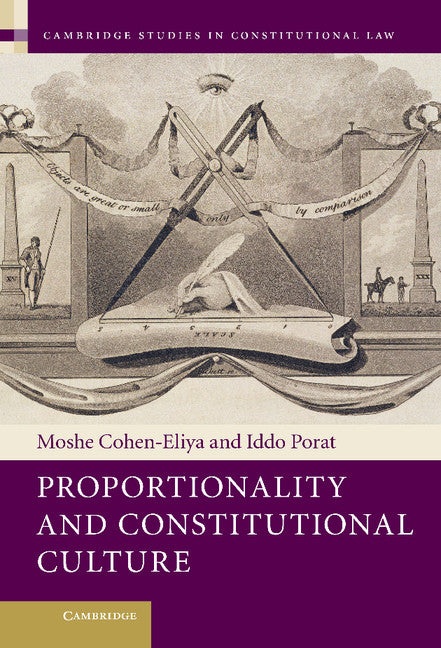Freshly Printed - allow 8 days lead
Couldn't load pickup availability
Proportionality and Constitutional Culture
A comparison of proportionality, the dominant doctrine in constitutional law worldwide, with the American doctrine of balancing.
Moshe Cohen-Eliya (Author), Iddo Porat (Author)
9781107021860, Cambridge University Press
Hardback, published 13 June 2013
184 pages
22.9 x 15 x 1 cm, 0.42 kg
'This is a brief book about a large subject that is admirable in its ambitions.' David Schneiderman, International Journal of Constitutional Law
Although the most important constitutional doctrine worldwide, a thorough cultural and historical examination of proportionality has not taken place until now. This comparison of proportionality with its counterpart in American constitutional law - balancing - shows how culture and history can create deep differences in seemingly similar doctrines. Owing to its historical origin in Germany, proportionality carries to this day a pro-rights association, while the opposite is the case for balancing. In addition, European legal and political culture has shaped proportionality as intrinsic to the state's role in realizing shared values, while in the United States a suspicion-based legal and political culture has shaped balancing in more pragmatic and instrumental terms. Although many argue that the USA should converge on proportionality, the book shows that a complex web of cultural associations make it an unlikely prospect.
Introduction
1. Exposition
2. History
3. Political culture
4. Epistemology
5. Justification and authority
6. Intent and impact
7. The future
Conclusion.
Subject Areas: Constitutional & administrative law [LND], Law [L], Political science & theory [JPA]


